DNVN - Vietnam needs to take specific actions such as issuing a set of assessment tools, regulating a mandatory roadmap for implementing green buildings/green building projects; needing to develop more effective incentive policies, raising awareness of using green buildings for investors and consumers...
These are the bright proposals at the International Conference with the theme: "Policies and laws on green building projects in Vietnam and some countries" co-organized by Ho Chi Minh City University of Law and Phuc Khang Investment and Construction Joint Stock Company (Phuc Khang Corporation - PKC) on the morning of April 10.
The program was attended by more than 120 guests, including experts and lawyers specializing in green building research in Singapore, Malaysia, the UK, Vietnam, representatives of state management agencies, businesses, lecturers, researchers, graduate students and students from related faculties...
Policy and legal picture of green buildings in Vietnam
The international conference was organized with the aim of identifying and analyzing the legal, economic , environmental and practical aspects of green building development in Vietnam, as well as learning from international experiences. The program included 2 main sessions with valuable presentations on green buildings such as: Presentation "Green buildings in Singapore - Construction of buildings using ultra-low energy and using no energy"; Presentation "Singapore's policies and laws on green building development and lessons for Vietnam"; Presentation "Laws and policies for green real estate projects in Malaysia; Presentation "Green building incentive mechanisms in London, UK"...
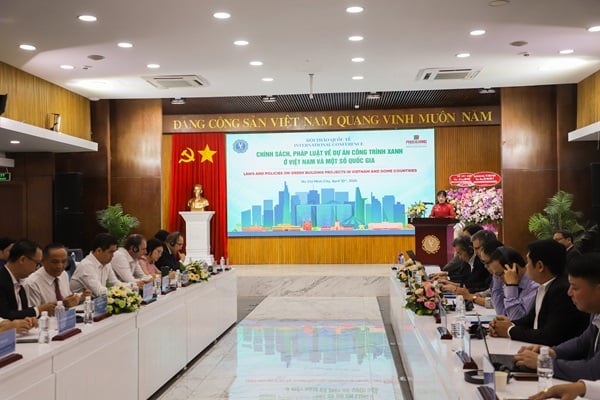
Assoc.Prof.Dr. Tran Viet Dung - Vice Rector of Ho Chi Minh City University of Law delivered the opening speech of the workshop.
In addition, there are also proposals on policies and laws related to the practice of green building development in our country in the coming time such as: "Legal basis for implementing green building projects in Vietnam"; "Green buildings in Vietnam - Development process and new challenges"; "Laws on green credit, green bonds for investment projects: current situation and recommendations"...
In his opening remarks, Associate Professor Dr. Tran Viet Dung, Vice Rector of Ho Chi Minh City University of Law, suggested: “Today we are witnessing an era where green buildings are not just a trend but also an indispensable part of our global commitment to sustainable development. In fact, green buildings have not only brought about positive changes to the landscape, but also established a practical, dynamic platform for studying sustainable development. Achievements around the world also emphasize the potential for cooperation betweeneducational institutions and government agencies in expanding the boundaries of green construction.
In Vietnam, the construction sector is promoting green construction measures, reflecting the country's commitment to sustainability and environmental protection. In this context, Ho Chi Minh City University of Law recognizes the urgent need to integrate the development of green construction activities with scientific research activities. Within the framework of the workshop, the cooperation between Ho Chi Minh City University of Law and Phuc Khang Investment and Construction Joint Stock Company, along with research and exchanges, will be evidence of promoting partnerships to contribute to common development.
At the event, the speakers agreed: Green buildings are becoming a global trend in green development, meeting the requirements of reducing greenhouse gas emissions into the environment. Green building development is a global trend today with the ability to realize sustainable development goals. However, the issue of green building development in Vietnam is still not popular due to many reasons, especially legal and policy issues that need to be resolved.
Experts also pointed out the shortcomings that limit the development of green buildings in Vietnam. Specifically: Real estate businesses are still hesitant to participate in developing this field due to high investment costs, experience in developing green buildings is not yet popular and the criteria for evaluating green buildings in Vietnam are still incomplete. On the part of state agencies, the Ministry of Construction, together with related ministries and branches, is still in the process of coordinating to develop preferential regulations, support taxes and fees, and facilitate procedures and documents for energy-saving and green buildings.
Proposing legal policies on green buildings
Ms. Luu Thi Thanh Mau - Vice President of the Vietnam Young Entrepreneurs Association, Vice President of the Ho Chi Minh City Real Estate Association, General Director of Phuc Khang Corporation, is known as one of the pioneering leaders with many activities to promote green buildings in Vietnam. At this international conference on policies and laws related to green buildings, Ms. Mau was one of the outstanding speakers, contributing a passionate speech with the topic: "Singapore's policies and laws on green building development and lessons learned for Vietnam".
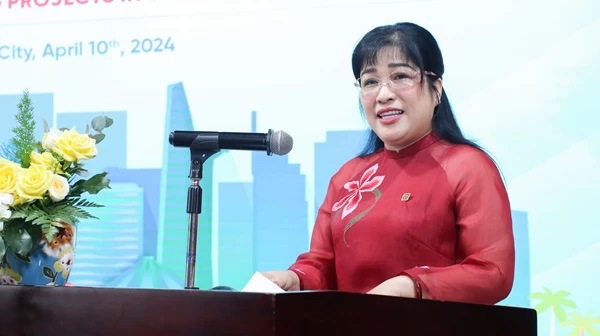
CEO Luu Thi Thanh Mau speaks at the workshop.
From practical experience and research, CEO Luu Thi Thanh Mau proposed that “It is necessary to issue a set of green building/green building project assessment tools specifically applicable to Vietnam and regulate the authority to assess and certify green buildings under the construction agency”. This is to prevent the arbitrary application of green buildings, and to create a basis for developing green buildings in a systematic, serious, and substantive manner.
The next proposal to promote green buildings in Vietnam, emphasized by CEO Phuc Khang Corporation, is: “There should be a mandatory roadmap for implementing green buildings/green building projects to gradually shift from the public sector to the private sector”. This is seen as sending a signal to the private sector and investors that the Government is serious about green buildings.
Ms. Luu Thi Thanh Mau also pointed out that the initial cost to implement a green building project in Vietnam is higher than that of a normal building project, ranging from 1.2% to 10%. Meanwhile, the preferential policies and support from the State for investors implementing green building projects are insignificant. This makes the business price of a green building project higher than that of a normal project, creating a reluctance for investors to invest in construction...
Ms. Mau has the following opinion on this issue: Vietnam needs to develop more effective incentive policies for green building investors such as: Loans with preferential interest rates; Research on floor area rewards at a reasonable level; Add more incentives for green bond issuers. It is necessary to organize awards related to green buildings to honor the contributions of individuals and organizations.
Finally, to promote green buildings in Vietnam, in parallel with policies and laws, it is also necessary to raise awareness of green buildings for investors and consumers.
“We can start first in urban areas through training programs from universities and expand to all levels of society, have a communication strategy about green buildings, popularize to those who need to buy, rent, or lease-purchase buildings what green buildings are and the great benefits that green buildings bring in terms of economy, society and environment”, Ms. Luu Thi Thanh Mau shared.
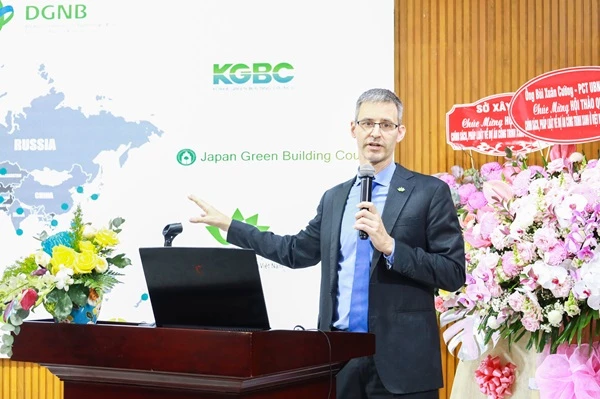
Mr. Douglas Snyder - Executive Director of Vietnam Green Building Council (VGBC) shared at the workshop.
At the same time, Mr. Douglas Snyder - Executive Director of the Vietnam Green Building Council (VGBC) in his presentation on “Green Building Vietnam - Development Process and New Challenges” also stated: “Green building is not a temporary trend of the Vietnamese construction industry but an inevitable trend to realize the goal of sustainable development. Green building should be considered an essential measure to deal with the increasing challenges in the Vietnamese construction sector, such as overpopulation and urbanization, issues of natural resource consumption, waste management, pollution and the impact of climate change, etc.
To accelerate the development of green buildings in Vietnam in the coming time, it is necessary to raise awareness of green buildings for the community and stakeholders, especially the government plays a very important role with appropriate strategies, regulations and policies.
Red River
Source


![[Photo] Ready for the top competitions of Vietnamese table tennis](https://vphoto.vietnam.vn/thumb/1200x675/vietnam/resource/IMAGE/2025/5/18/9c547c497c5a4ade8f98c8e7d44f5a41)
![[Photo] Party and State leaders attend the special art program "You are Ho Chi Minh"](https://vphoto.vietnam.vn/thumb/1200x675/vietnam/resource/IMAGE/2025/5/18/6895913f94fd4c51aa4564ab14c3f250)



![[Photo] Many young people patiently lined up under the hot sun to receive a special supplement from Nhan Dan Newspaper.](https://vphoto.vietnam.vn/thumb/1200x675/vietnam/resource/IMAGE/2025/5/18/6f19d322f9364f0ebb6fbfe9377842d3)






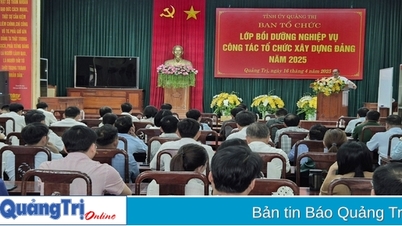
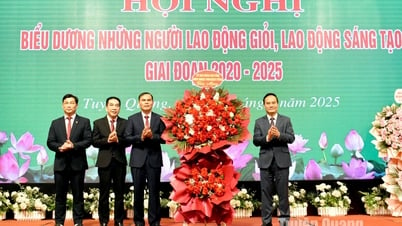











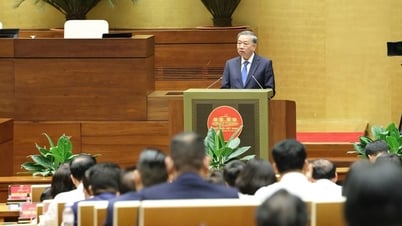





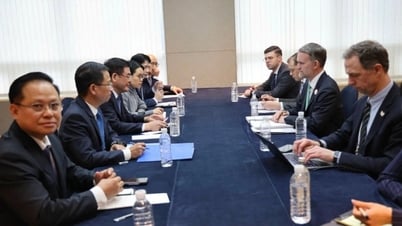

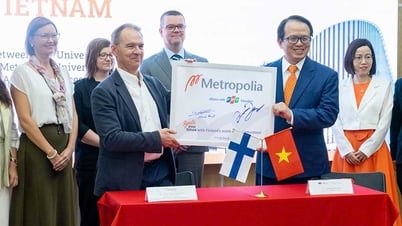

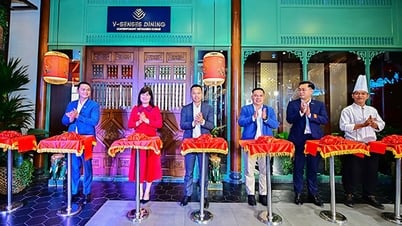















































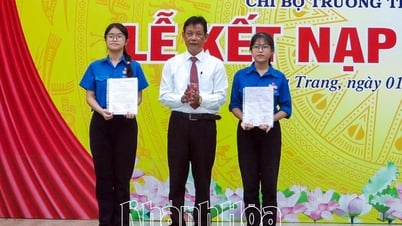
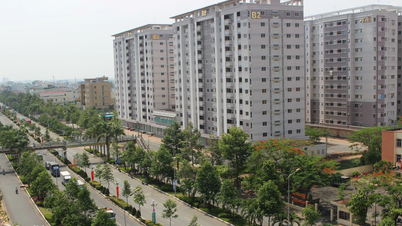

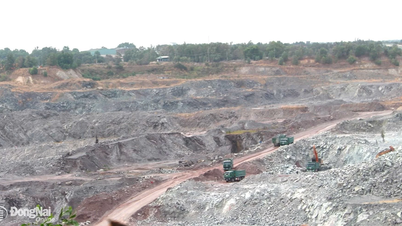
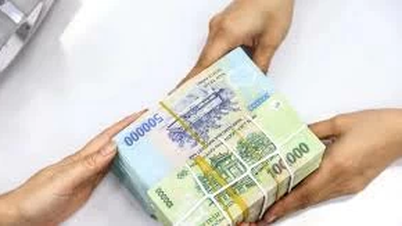
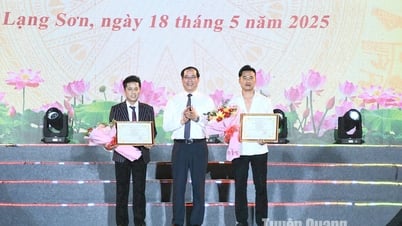











Comment (0)